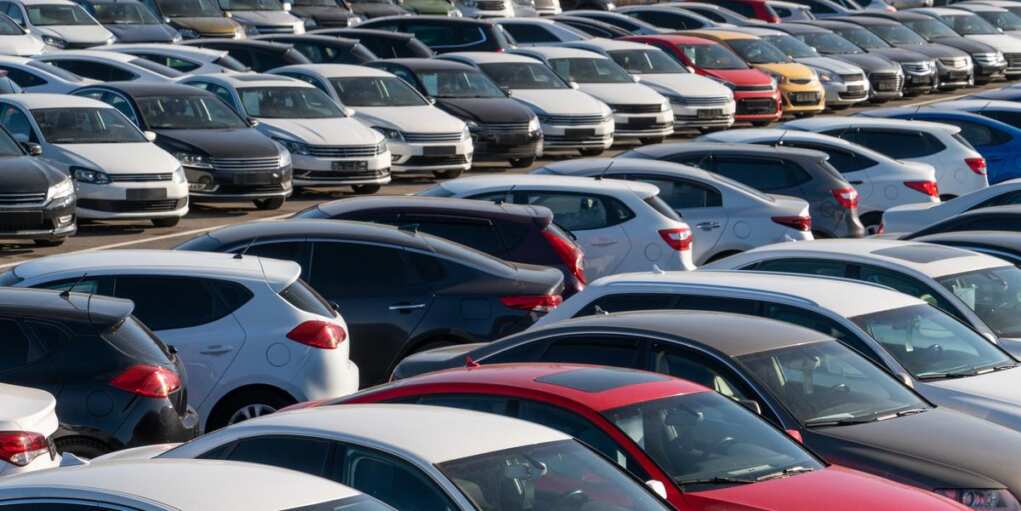Trump Drops 25% Auto Tariff Bomb—Foreign Car Giants in Panic Mode

President Trump just sent a thunderous message from the Oval Office: If you want to sell cars in America, you’d better build them here. On Wednesday, Trump announced a 25 percent tariff on all imported automobiles, a bold, sweeping move aimed directly at jumpstarting domestic auto manufacturing and finally rebalancing the lopsided trade deals that have gutted America’s industrial core for decades.
“What we’re going to be doing is a 25 percent tariff on all cars not made in the U.S.,” Trump said with characteristic bluntness. No exemptions. No apologies. Just a clear signal to both Detroit and Tokyo: the days of hollowing out America’s auto industry to pad foreign profit margins are officially over.
Set to take effect on April 2, the tariffs will apply to every finished car and truck shipped into the country—even if they wear American brand names like Ford or GM but are manufactured overseas. This isn’t a shot across the bow. It’s a direct hit on the globalist business model that offshored American jobs while flooding our markets with foreign-built vehicles, often subsidized by countries that lock out our exports.
The tariff plan doesn’t discriminate based on trade agreements, either. Canada, Mexico, Europe, Japan—it doesn’t matter. If your cars aren’t made on U.S. soil, you’re paying the price. And for the first time in a long time, that price will benefit American workers, not foreign bureaucrats or global CEOs.
“Anybody who has plants in the United States, it’s going to be good for,” Trump said. “It’s very exciting.”
Yes, it is—unless you’re one of the corporations that thought you could permanently offshore labor while still enjoying unlimited access to the American consumer. Ford and GM, take note. Both companies have spent years building vehicles in Mexico, China, and elsewhere to dodge labor costs and environmental regulations—then selling those cars back to the very people they laid off. Trump’s tariff forces them to choose: build in America or lose your price advantage.
The U.S. currently imports about three times more vehicles than it exports. That’s not a “free market”—that’s economic self-sabotage. And while some consumers may see a slight price bump on imported models, the long-term payoff is massive: more jobs, more factories, more skilled labor, and a revitalized manufacturing base that doesn’t rely on foreign dictatorships to function.
The White House estimates that the new tariff could bring in up to $100 billion a year. That’s not just revenue—it’s leverage. It gives America the upper hand in trade negotiations and puts pressure on foreign carmakers to invest directly in American communities. Already, auto manufacturers like Hyundai, Toyota, and Volkswagen are looking to expand their U.S. operations to avoid the tariff hit.
Critics, of course, are screeching about higher car prices and “protectionism.” These are the same people who were silent while millions of American jobs disappeared and entire towns were left in economic ruin. For them, “free trade” meant free money for global investors and a raw deal for American workers. Trump is turning that model upside down.
It’s still unclear whether the policy will extend to auto parts, but the administration has hinted that some leniency may be offered to certain countries down the line—provided they play ball and shift production to the U.S. But make no mistake: the priority is bringing back full-scale vehicle manufacturing, not just assembling cars from imported pieces.
And here’s the beauty of it: this is Trump’s America First agenda in action—not as a slogan, but as policy. While Biden-era economists obsessed over climate goals and EV mandates, Trump is getting to the heart of the matter—where things are built, who builds them, and how we rebuild the middle class.
This 25 percent tariff isn’t just about cars. It’s about sovereignty. It’s about fairness. And it’s about sending a message that American workers will no longer be the collateral damage of globalism.
The car industry helped build this country. Trump just gave it a reason to come home.

